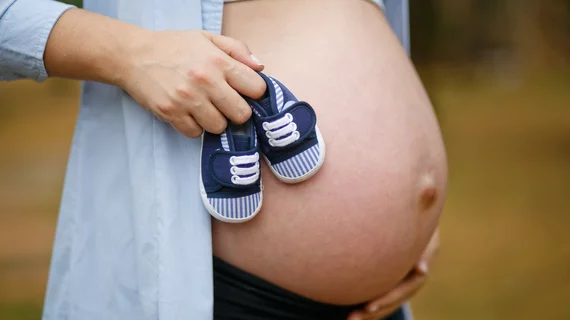Pregnant women who felt stressed by healthcare disruptions caused by the COVID-19 pandemic radiated the unease to their developing offspring. The effects were observable on fetal MRI of both brainstem structure and functional activity.
The researchers who made the findings, from Children’s Hospital Los Angeles and Children’s Hospital of Pittsburgh, suggest their work may help inform stress management and behavioral healthcare for pregnant women and their babies.
The preprint server medRxiv has posted the study ahead of peer review [1].
For the study, lead author Vidya Rajagopalan, PhD, senior author Ashok Panigrahy, MD, and colleagues prospectively recruited 45 women from in and around Los Angeles.
The participants completed self-assessment forms designed to gauge perceptions of stress and solicit descriptions of coping behaviors related to pandemic-related disruptions. The women completed the forms at multiple time points between 2020 and 2022.
The participants also agreed to undergo fetal MRI, which neuroradiologists interpreted using quantitative multimodal measures.
Analyzing the results, the researchers found significant correlations between participants’ self-reported stress and fetuses’ brainstem structure and brain activity.
In their discussion, Rajagopalan and co-authors clarify the finding, stating that higher maternal stress was associated with increased brainstem volume—suggesting accelerated brainstem maturation—and globally decreased temporal variability of function, suggesting reduced functional connectivity, in the fetal brain.
They also found differences in the prevalence of specific coping behaviors between pregnant women who reported high stress compared to those who reported low stress.
These behaviors included “maladaptive” actions such as substance abuse, self-blame and denial as well as “adaptive” actions like seeking social support, praying and enjoying situation-appropriate humor.
Rajagopalan and co-authors believe their research represents the first multimodal study of fetal brain development in the context of maternal stress owing to pandemic-related factors.
They note the consistency of their findings with those of previous studies suggesting the observability of alterable fetal programming.
The authors conclude:
Comparing coping behaviors between pregnant women reporting higher and lower stress, our study provides insight into potential avenues for improved stress management and mental health outcomes among pregnant women.”
The so-far unpublished study manuscript is posted in full for free.

